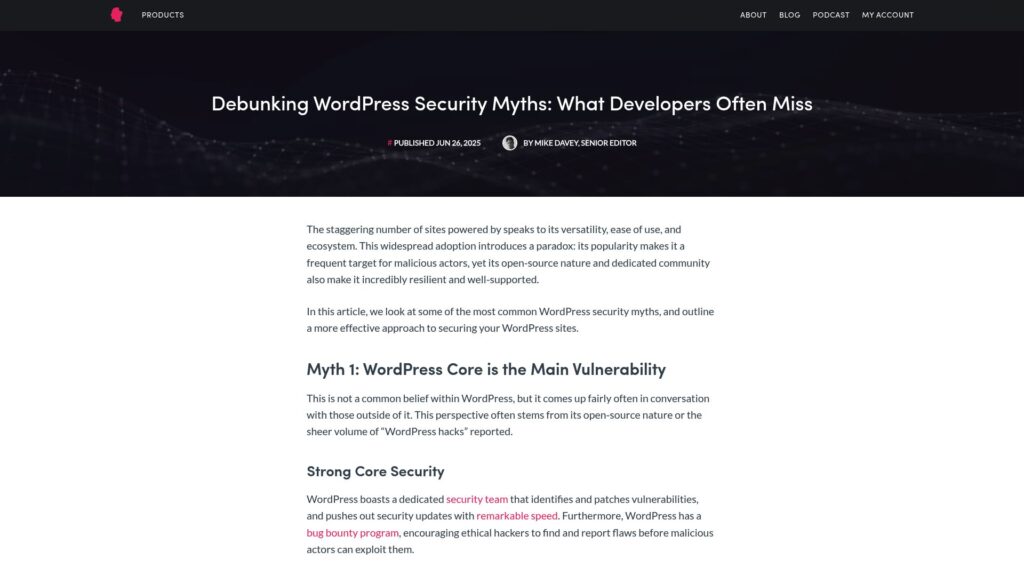Debunking WordPress Security Myths: What Developers Often Miss
WordPress Security Myths: Key Insights
- WordPress Vulnerability: Contrary to beliefs, core vulnerabilities are rare; most issues arise from outdated software, poorly coded plugins/themes, weak user practices, and subpar hosting.
- Security Through Obscurity: Changing default settings offers minimal protection against automated attacks; real security relies on strong practices like file permissions and two-factor authentication.
- Security Plugins Limitations: While valuable, plugins can't fix server vulnerabilities or user behavior. They complement but don't replace comprehensive security strategies.
- All Sites Are Targets: Even small sites are targets for bots seeking vulnerabilities. Compromised sites can spread malware or damage reputations.
- Updates Aren't Sufficient: Regular updates are crucial, but must be part of a broader strategy including strong passwords, secure hosting, and proper permissions.
- HTTPS Isn’t All-Proof: HTTPS secures data in transit but does not address internal vulnerabilities; a multi-layered approach is necessary.
- Shared Hosting Can Be Secure: Quality varies; reputable hosts offer security measures. User management remains critical for overall security.
- Proactive Security Checklist: Regular updates, strong credentials, secure hosting, proper vetting of plugins/themes, and comprehensive backups should be prioritized to ensure ongoing protection.
Effective WordPress security requires a nuanced, layered approach beyond common myths.
https://deliciousbrains.com/debunking-wordpress-security-myths-what-developers-often-miss/
